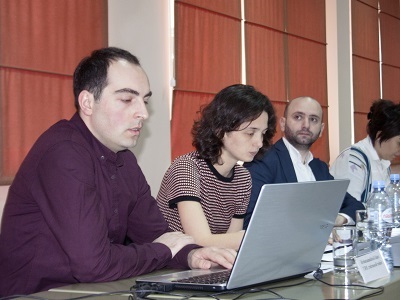Facilitating cooperation among Georgia’s smallholders is in the focus of EU’s 52 mln Euro ENPARD project, of which ISET is a (small) part. An evaluation effort, coordinated by the ISET Policy Institute, has uncovered some interesting facts and figures.
Implemented by four NGO coalitions since January 2014, in its first year ENPARD supported 82 coops, including 738 members (36% of whom are females).
- Females are best represented in chicken and potato cooperatives. Not surprisingly, there are NO women in machinery groups.
- While as a rule ENPARD-supported farmer groups are very small (less than 10 members on average), the largest coop consists of 31 members who are in the business of beekeeping and honey (apiculture)! The smallest (4 members) is in winemaking.
- Beekeeping is also the domain of Georgia’s youngest farmers: three of the youngest cooperatives are operating in this sector.
- The highest penetration of ENPARD-supported coops is observed in the hazelnuts (12), apiculture (9) and viticulture (8) sectors.
- ENPARD’s strongest is a hazelnut-processing coop, reporting more than 5mln GEL in gross income in 2014.
On Friday, March 25, these and other findings were discussed at a workshop on the Monitoring and Evaluation (M&E) of ENPARD supported cooperatives. Hosted by ISET, this workshop was attended by all four ENPARD implementing consortia: CARE, Oxfam, Mercy Corps and People in Need (PIN). ISET’s Rati Kochlamazashvili presented the preliminary results of the Annual Cooperative Baseline Survey implemented by all consortia.
ISET itself is a member of the CARE consortium together with RDA and GFA. We are proud to have the leading role in ENPARD’s Monitoring and Evaluation process, tracking the effectiveness of ENPARD activities and suggesting changes to its project design and the overarching policy framework.











